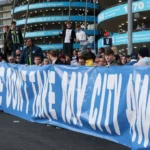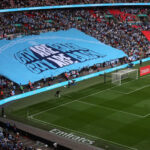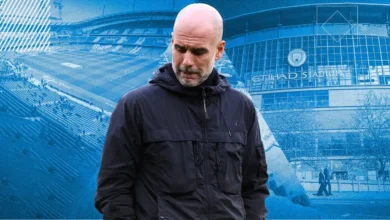Major English Club Set For Huge Points Deduction

There are football stories that speak about glory, about trophies, about the rise of a small club to something beautiful. But there are also football stories that feel like heartbreak, like a city crying for its club, like fans watching their childhood love being pulled apart piece by piece. Right now, Sheffield Wednesday are living the kind of story that no supporter ever wants to experience. Once a proud club with history, tradition and passion, they have now fallen into the darkest corner of English football. They are not just losing matches. They are losing hope, trust and identity.
Sheffield Wednesday, one of the most respected names in the Championship, are facing a huge points deduction after officially filing for administration. For their loyal fans, it feels like being hit by a storm that never ends. Every week brings a new problem. Every headline feels heavier than the last. It has been months of frustration, confusion, and pain. What used to be a strong football family has now turned into a club fighting to breathe under the crushing weight of financial disaster.
The problems didn’t start overnight. The signs have been there for months. Owner Dejphon Chansiri, who once promised to take the club back to the Premier League, is now a man surrounded by criticism and anger. His decisions have been called reckless. His promises feel broken. He has refused to sell the club, even as it burns from the inside, and his asking price—according to reports—is far higher than what any sane buyer would offer. It is like watching a captain refusing to leave a sinking ship, but also refusing to let anyone else save it.
The trouble started last season, when Wednesday’s finances began to fall apart after missing out on key sponsorships and failing to attract serious investors. Since then, players and staff have suffered in silence. They have not been paid on time on five separate occasions in just seven months. For a professional football club, that is chaos. For the players, it creates uncertainty. For the staff, it creates fear. Imagine working every day, fighting for your team, and still not knowing if your wages will arrive. That has been the sad reality at Hillsborough.
In June, the English Football League placed Sheffield Wednesday under a three-window transfer embargo. That meant no proper signings, no transfer fees, no wages that break the rules. It was like putting the club in handcuffs while everyone else kept running. The rules were so strict that the club could not pay any transfer fees, wages, or bonuses to new players. Because of that, their only outfield signing during the summer was young Manchester United defender Harry Amass, who joined on loan.
Things became even worse when their main goalkeeper, Pierce Charles, got injured. The club had no money to buy a replacement. They had to beg the EFL for special permission just to sign goalkeepers on emergency loans. Ethan Horvath and Joe Lumley were both brought in for short spells. Lumley joined the team on a seven-day loan, something you hardly ever see at Championship level. It was a desperate move, and everyone could see it.
The situation in the dressing room quickly became toxic. During pre-season, six players handed in their notices to leave the club. They had lost patience. They wanted to protect their careers. Among those players were Josh Windass and Michael Smith, two forwards who had given their hearts to the team. To lose them was a massive emotional and footballing blow. Only captain Barry Bannan, the heartbeat of the squad, chose to stay and sign a new deal. But even that decision felt bittersweet. For fans, it was courage. For others, it was loyalty to a dream that might already be dying.
The club tried to raise money by selling a few players. Winger Djeidi Gassama was sold to Rangers for around £2.2 million. But that small sum could never save a club sinking in millions of debt. It was like putting a bandage on a deep wound. The fans knew it, the players knew it, and even those close to the boardroom whispered that the problem was bigger than anyone wanted to admit.
Before the season began, another storm hit. Manager Danny Rohl, a young coach who had earned respect for his energy and ideas, decided to leave. He couldn’t work in those conditions. No money, no stability, no trust from the owner. He walked away before a single competitive game was played. That left the club scrambling for a replacement. They appointed Henrik Pedersen, a man respected for working with youth players. But his task was impossible. He had to build a team out of academy kids, players with barely any experience of senior football, and he had to compete in one of the toughest leagues in Europe.
The result was predictable. Sheffield Wednesday sank to the bottom of the Championship table. Eleven games in, they had just one win. Their fans, known for their loyalty and passion, began to lose faith. Some chose to stay away from Hillsborough in protest. The atmosphere that once brought life to matchdays was gone. In its place were empty seats, silent stands, and banners calling for the owner to leave.
On social media, thousands of supporters joined campaigns demanding change. Local journalists described the scenes around Hillsborough as shocking. Many fans simply refused to buy tickets, believing that hitting the club financially might force Chansiri to step down. But the Thai businessman remained unmoved. He told anyone who asked that the club was not for sale—unless someone met his huge asking price. According to reports, several groups that tried to buy Wednesday walked away frustrated after being met with confusion and a lack of clear communication.
Then came the biggest bombshell. Reports surfaced that Sheffield Wednesday owed over £1 million in unpaid taxes to HMRC. The government’s tax office was preparing a winding-up petition—essentially a legal action that could shut the club down if the debt was not paid. It was a nightmare scenario. A club with nearly 160 years of history, a club that had played in the Premier League, was suddenly staring at extinction.
Desperate to survive, Sheffield Wednesday filed for administration. The move was confirmed through a court document seen by Reuters. It was official—the club had lost control of its own affairs. An independent administrator would now take charge of all financial matters. For the fans, it was another knife to the heart. They knew what this meant: an automatic 12-point deduction, as per EFL rules. The same punishment that nearly destroyed Derby County just a few years ago
If Wednesday receive that 12-point deduction today, it would send them to minus six points in the Championship table. That means even survival would become almost impossible. Their new manager would need a miracle just to keep them up. The mood in the city turned dark. Supporters who had stood by their club through decades of ups and downs felt powerless. They had done everything—protests, chants, boycotts—but the collapse kept getting worse.
The administrators will now try to do what Chansiri failed to do: save the club from complete ruin. Their job is to manage the debt, sell assets, and find a new owner willing to rebuild from the ashes. The company expected to handle the process, Begbies Traynor, is known for helping troubled businesses. But football is not just business. It is emotion, identity, and history. Saving Sheffield Wednesday will take more than a balance sheet. It will take people who understand what the club means to its city.
For the players still there, life has become painful. They turn up for training, they fight for pride, but they know that every result on the pitch might not matter anymore. The points deduction will crush their season. Young players who dreamt of breaking into the first team are now thrown into a crisis no academy can prepare them for. They are playing for a club under administration, with their wages uncertain, and their future unclear.
For Henrik Pedersen, the task is emotional torture. He must prepare his players to fight for a club that might not even exist in the same way by next summer. Every press conference feels like explaining disaster. Every defeat feels heavier. Yet he continues to work, maybe out of love for the game, maybe out of belief that something good can still happen.
The fans, as always, remain the soul of the club. Even in the darkest days, Sheffield Wednesday supporters find ways to show love. Some hang scarves outside Hillsborough. Some gather in pubs and sing the old chants. Some post emotional messages on social media about their first memories of watching the team. To them, this is not just about football. It’s about identity. Sheffield is a city that breathes football. To lose its club would be like losing a part of itself.
As the administrators begin their work, the questions keep coming. Can they find a new owner in time? Can they clear the debt? Will the EFL allow them to survive the season? No one knows. The future is written in smoke. What everyone agrees on is that this crisis should never have reached this level. Warnings were ignored. Fans were silenced. Promises were broken.
Dejphon Chansiri remains a controversial figure. Once seen as a savior, he is now blamed for the club’s downfall. Many fans say he has no connection with the reality of running a Championship team. They accuse him of caring more about control than about progress. Yet in interviews, Chansiri insists that he loves the club and has done his best. It is a tragic cycle of misunderstanding and mistrust.
Football can be cruel, especially to those who love too deeply. Sheffield Wednesday’s fall is not just another news story. It is a reminder of how quickly things can change. One decade ago, they were dreaming of promotion. Today, they are fighting for survival. Their story mirrors that of many proud clubs that lost their way chasing modern football’s money race.
If history has shown anything, it’s that fans never truly give up. They might suffer, they might cry, but they always return. Sheffield Wednesday’s supporters have seen dark days before, and somehow, they always come back. This time, it will be harder, but their love is strong. Whether the club stays in the Championship, drops to League One, or even lower, those blue and white shirts will still be worn with pride.
Somewhere inside Hillsborough, under the silence and the sadness, there is still a heartbeat. Maybe small, but it’s there. The sound of a club refusing to die. The hope that one day, this pain will become a story of rebirth. Because in football, miracles happen. And if there’s one thing Sheffield Wednesday have always believed in, it’s that hope never truly leaves.
So even as the EFL prepares to hit them with a 12-point deduction, even as administrators take over, and even as the future looks like a storm with no sun, the spirit of Sheffield Wednesday will not disappear. It might bend, it might bleed, but it will not break. Because this club belongs to its people, not to an owner or a balance sheet. And in the end, it is the people who will decide how the story ends.
For now, the city waits. The fans hold their breath. The players keep fighting. Sheffield Wednesday are wounded, yes, but not defeated. The pain is real, the crisis is deep, but the dream remains alive. And maybe one day, when all this is over, the world will look back at this dark season and remember it not as the end, but as the moment Sheffield Wednesday began to rise again from the ashes.















